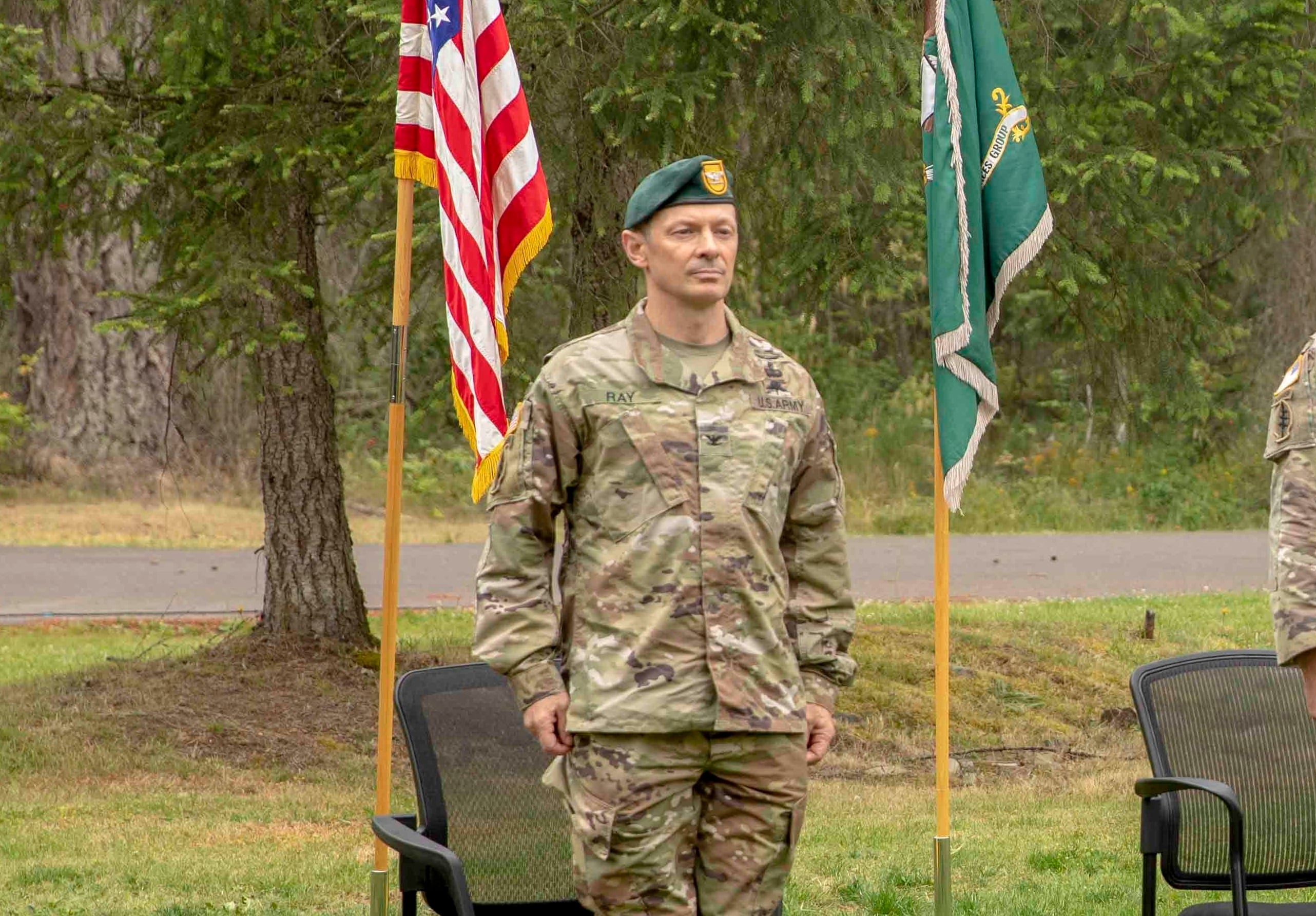The former commander of 1st Special Forces Group, who is facing assault and kidnapping charges after an armed standoff with police, will be honorably discharged, keeping retirement pay commensurate with his current rank, according to a July 2 memo.
The memo documenting Col. Owen G. Ray’s discharge status was included among court records filed with the Pierce County Superior Court in Washington state, near his duty station of Joint Base Lewis McChord.
“The Army Grade Determination Review Board has reviewed the Retirement in Lieu of Elimination, based on misconduct and moral or professional dereliction,” reads the memo signed by Michael T. Mahoney, a deputy assistant secretary of the Army. “I approve his Retirement in Lieu of Elimination, and he will be placed on the Retired List in his current grade of 0-6 (Colonel).”
The 47-year-old Ray will be allowed to retire Sept. 30 with a separation code of “RNC,” meaning “unacceptable conduct,” though his characterization of service will be noted as “honorable.”
Ray’s defense attorney, Jared E. Ausserer, confirmed the criminal case is set for trial in mid-September. Prosecutors are arguing that Ray should be sentenced to seven years in prison, which Ausserer said is excessive.
“[Prosecutors] have been unwilling to acknowledge that the PTSD components of Col. Ray’s service have any impact on this case whatsoever, and they’re treating him very differently than a civilian,” Ausserer said. “I have multiple clients who are charged with very similar conduct who are getting misdemeanors.”
RELATED

Ausserer stressed that Ray served several decades with no history of similar actions, adding that the military’s decision to honorably discharge his client reflects that. Army officials did not respond to requests for comment prior to this article’s deadline.
Ray was suspended from his last Army assignment as the chief of staff for I Corps after he was arrested and charged by Pierce County prosecutors with two counts of felony harassment, one count of kidnapping, two counts of assault and one count of reckless endangerment.
The charges stemmed from an incident on the night of Dec. 27. Court documents allege that Ray hit his wife multiple times, grabbed a pistol and rifle from his gun locker and threatened to kill police if they attempted to arrest him. Two children woke up and witnessed the event.
State and local police, who responded to a domestic assault in progress call at Ray’s home, spent roughly two hours talking the armed soldier into surrendering.
“The defendant outlined his extensive training in combat,” reads a probable cause affidavit from that night. “He told law enforcement he was a 25-year veteran and spent most of his time in the 1st group special forces. He stated that he had killed a lot of people and he had no problem killing law enforcement if they made attempts to arrest him. The defendant was calm, coherent and articulate.”
Audio recordings of key portions of the incident were taken on the wife’s cell phone, Ausserer said, and those are being reviewed before trial. Ausserer expects the recording to show that the only person who Ray intended to hurt was himself, although the affidavit alleged Ray also threatened to kill his wife.
RELATED

Prior to the Dec. 27 incident, concerns about Ray had already been raised in an inspector general complaint made by a fellow Green Beret officer who served under him at 1st Special Forces Group, according to a complaint obtained by Army Times early this year.
The complaint alleged that Ray overreacted on multiple occasions and would berate subordinates. However, the Army’s Special Forces Command IG office returned that complaint as “not substantiated” in June 2020.
One month later, Ray was elevated to be I Corps’ chief of staff, a coveted role that often leads to the general officer ranks. Before being suspended, though, Ray was not in a promotable status, according to I Corps.
While assigned to I Corps, Ray was not the subject of any other investigations, officials at the unit said previously.
Ray was released from jail on a $100,000 bond in mid-July, according to court documents.
His wife wrote in a victim statement to the court that her military protective order against Ray expires when he retires. She asked that a county protective order be extended to include the town in which she and her children live, even after Ray leaves the military.
Documents filed by Ray’s defense attorney had requested that he be allowed to travel throughout Washington state to attend Veterans Affairs facilities for treatment and visit with family other than those protected by the no-contact orders.
Editor’s note: This article has been updated with comment from Col. Owen G. Ray’s defense attorney.
Kyle Rempfer was an editor and reporter who has covered combat operations, criminal cases, foreign military assistance and training accidents. Before entering journalism, Kyle served in U.S. Air Force Special Tactics and deployed in 2014 to Paktika Province, Afghanistan, and Baghdad, Iraq.



